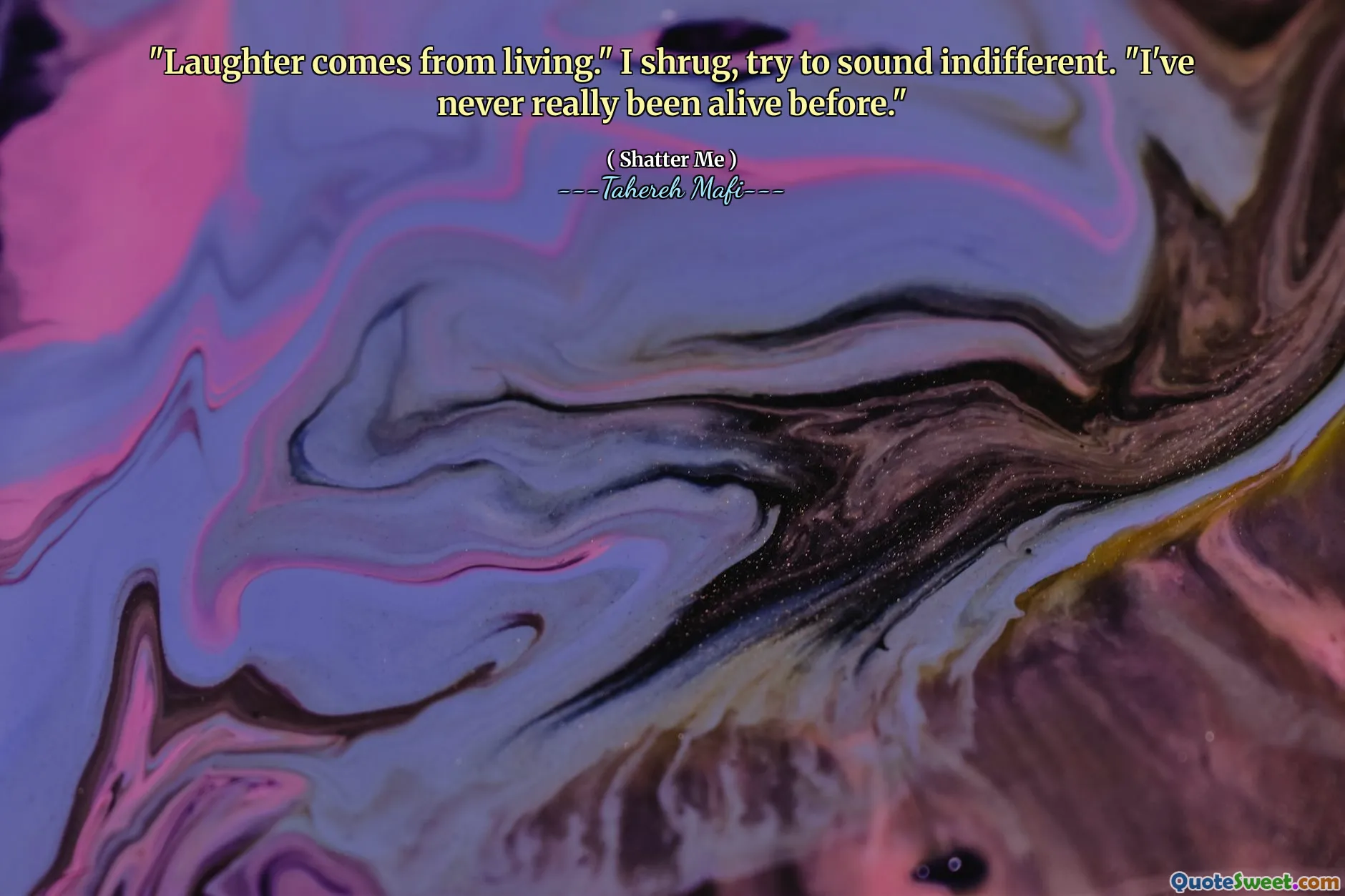
"Laughter comes from living." I shrug, try to sound indifferent. "I've never really been alive before."
This quote profoundly captures the delicate relationship between experience and emotional expression. The initial phrase, "Laughter comes from living," suggests that true joy and the ability to laugh are inherently connected to a full engagement with life. Laughter is not merely a reaction or an act but a reflection of deep, lived experience. It implies richness in moments, a connection to the spectrum of human emotions, and the vulnerability that living entails.
The response, "I've never really been alive before," adds a layer of poignant introspection and perhaps sorrow. It suggests a character who has felt detached from life, as if shielded or confined in such a manner that genuine vitality and spontaneity were inaccessible. The choice to try to sound indifferent reveals a protective mechanism, emphasizing a struggle to embrace or reveal vulnerability. This duality—between longing for life’s fullness and the hesitation or fear to embrace it—is deeply human.
In the context of "Shatter Me," this quote may be highlighting themes of isolation, self-discovery, and emotional awakening. It reflects a journey from numbness or alienation toward connection and acceptance, an exploration of what it really means to be "alive." It invites readers to consider their own emotional numbness or barriers, encouraging self-compassion and the courage to engage deeply with life, despite its inherent challenges. Ultimately, it reminds us that laughter, joy, and vitality are not superficial; they are the byproduct of truly living and feeling.






